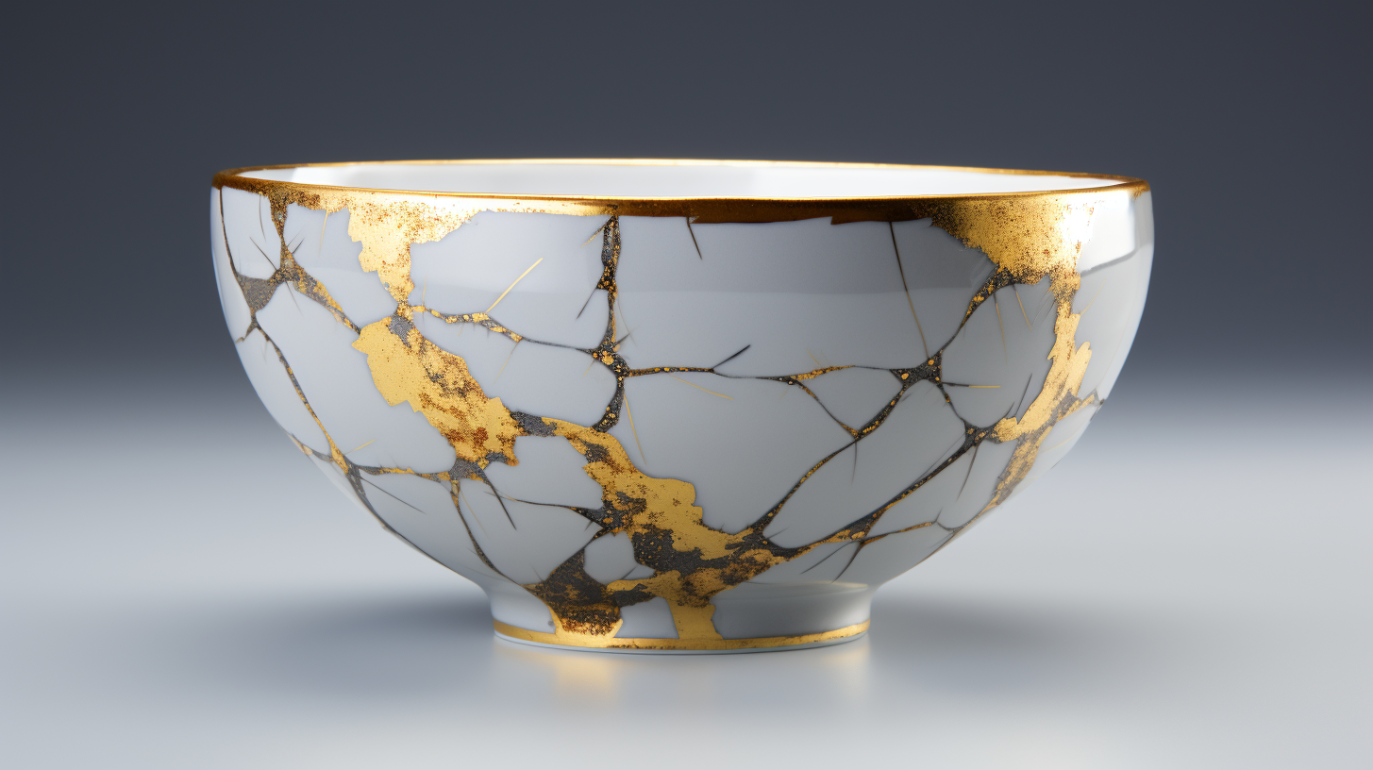Kintsugi is an ancient Japanese practice of repairing broken pottery with gold. The goal is to create a new, more beautiful object by highlighting the breakage rather than trying to hide it. As a metaphor for life, it shows us how to see the broken, painful parts of ourselves and others as an opportunity to add strength, beauty and character. When I first learned about kintsugi it made me think of grief, which we all know can be very messy with all of its broken pieces. Yet in thinking about this ancient Japanese practice, I am reminded of the gold that can be found in grief. Where/how can we find the gold? Below are five golden gifts we can mine in our often messy grief journey.
Five gifts that grief makes available:
- Seeing with new eyes: Grief can gift us with new eyes or a fresh perspective on life. It can help us to make or change our priorities, either short term in the day-to-day things or in the long term. It can also challenge previous beliefs and/or values that we hold close to our hearts while possibly inviting us to create new ones.
- Help with mindfulness: Our journey through grief seems to almost force us to pause and take stock. In the midst of grief we often feel like time stands still for us while the rest of the world continues moving forward on its own. You might wonder how others can simply go about their days while we are trying to wade through quicksand with cement boots on. The practice of mindfulness can help us learn to take one day, one hour or simply one minute at a time with grace.
- An opening to gratitude: Seeking gratitude in grief is a marathon and not a sprint, often said to be like taking three steps forward and two steps back. This is where self-compassion and empathy for ourselves and others come into play as you literally can feel at times like it is all you can do to even get out of bed in the morning and brush your teeth. But this is ok and oh so very normal. Giving yourself grace can open the door or even the smallest window into considering gratitude.
- A chance to pay it forward: When I lost my partner many years ago to a tractor trailer who ran through a red light with less than 50% of its braking capacity, I was beyond shattered. Part of what helped me heal was reaching out to another woman who lost her partner after a long illness. I learned about this woman through the church where I held the memorial service for my partner; I did not know her at the time. I just knew what it was like to be a part of a disenfranchised group of grievers and I wanted to let someone else know that he/she was not alone in grief. This was so powerful to me in my grief journey to pay it forward and support someone else who had also lost a same-sex partner.
- A clear call to action: Many people turn their grief into a call to action. Consider how MADD (Mothers Against Drunk Driving) got started and how many other people turn their grief into a crusade to help others and raise awareness and support for specific causes in their loved one’s name, honor and memory. In addition, turning grief into action can have several benefits such as guiding that restlessness into a focus, meeting others who have shared losses, and creating a community of grief support for the future.
There is no denying that grief is difficult and messy on so many levels. Yet like the kintsugi practice, allowing the broken parts of ourselves and others to shine through the cracks can enable us to see and feel and touch the gifts and gold in grief.
Kim White, MSW, LSW, CT, is a social worker and grief specialist with certification in thanatology (the study of grief and bereavement) through ADEC (Association for Death Education and Counseling). She is an elementary school counselor in NJ who also works with the Veterinary Hope Foundation as a veterinary social worker facilitating support groups. This past summer was her 15th year with Experience Camps as a Grief Specialist.
